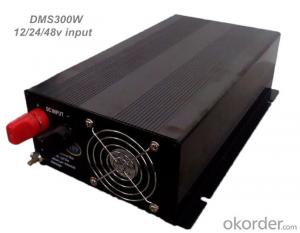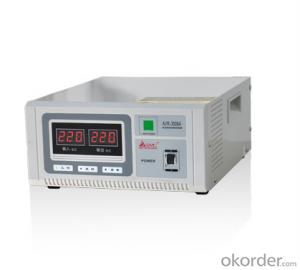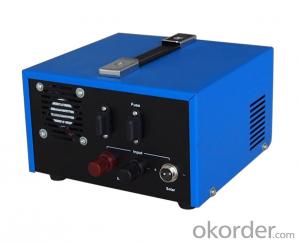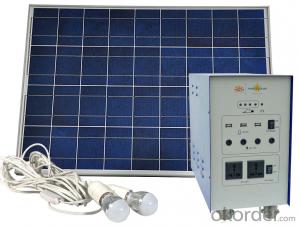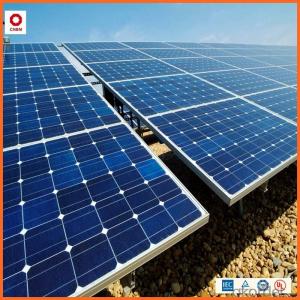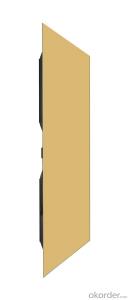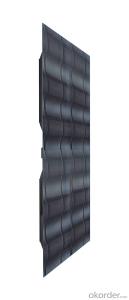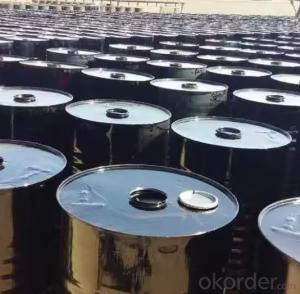Pure Sine Wave Solar Inverter 300W High Efficiency 12V/24V/36V/48V Input
- Loading Port:
- Qingdao
- Payment Terms:
- TT or LC
- Min Order Qty:
- 1 pc
- Supply Capability:
- 800 pc/month
OKorder Service Pledge
OKorder Financial Service
You Might Also Like
Specifications
1.Pure sine wave output(<2%THD)
2.High Efficiency 87%-90%
3.High motor start driven force
4.Function of battery protection
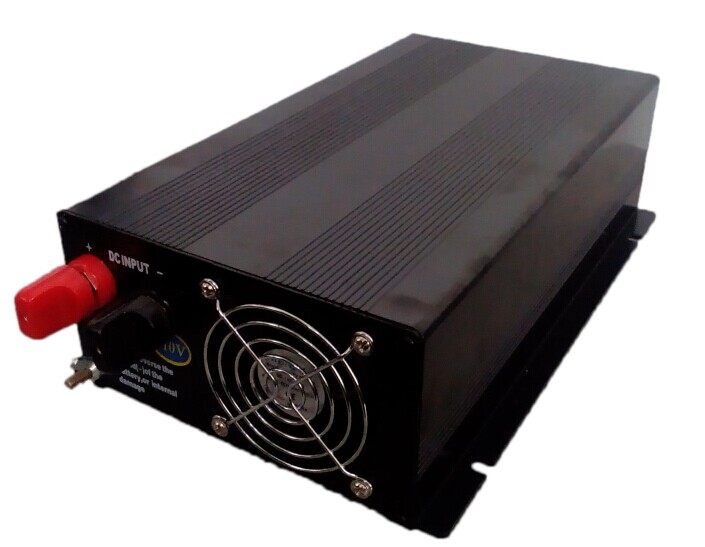
Product characteristic:
1.Pure sine wave output(<2%thd)< span="">
2.Input & Output fully isolation design
3.High Efficiency 87%-90%
4.High motor start driven force
5.5-stage thermal control fan
6.Function of battery protection
Technical Parameters:
Model | DMS300-12 | DMS300-24 | DMS300-36 | DMS300-48 |
Continuous output power | 300W | 300W | 300W | 300W |
Max power output | 320W | 320W | 320W | 320W |
Peak instantaneous power | 600W | 600W | 600W | 600W |
Conversion efficiency | ≥87% | |||
No -load current | 0.65A | 0.33A | 0.22A | 0.17A |
Output AC Voltage | 220/230/240/110/120/130V +5% | |||
Output wave form | Sine wave < 2%THD | |||
Frequency output | 50/60Hz+2% | |||
Input Dc Voltage | 10-16VDC | 20-30VDC | 30-45VDC | 40-60VDC |
Fault display | Red lamp flickers and buzzer alarms | |||
Working temperature | -20~55°C | |||
Function of protection | Alarm and protection in over loading, over voltage, low voltage, short circuit, over heating and converse connection, etc. | |||
Fan | Thermal control | |||
Product measurement(mm) | 265*140*81 | |||
Pack measurement(mm) | 340*165*140 | |||
Net weight | 2.6Kg | |||
Gross weight | 2.8Kg | |||
Application:
Electric tools:fretsaws, drills, mullers, grinder wheels, mowers, air compressors, etc.
Office equipment:computer, facsimile machines, scanners, etc.
Kitchen appliances:microwave oven, refrigerators, blenders, soybean juice machine, coffee makers, ovens, etc.
Lighting instruments: high pressure sodium lamp, compact fluorescent light, daylight lamp, halogen light, etc.
Home entertainment electronics:TV, blower, vacuum cleaners, fans, video games, musical instrument, charger, etc.
Payment Terms:
T/T, West Union,Money Gram, Paypal
Express Delivery:
EMS, DHL, FedEx, TNT, UPS
FAQ:
Q1:Can we visit your factory?
A1:Sure,welcome at any time,seeing is believing.
Q2:Which payment terms can you accept?
A2:T/T,L/C,Moneygram,Paypal are available for us.
- Q:Do solar energy systems require regular maintenance?
- Yes, solar energy systems do require regular maintenance. This includes cleaning the panels, checking for any damage or defects, and monitoring the system's performance. Regular maintenance helps ensure optimal efficiency and prolongs the lifespan of the solar energy system.
- Q:Can solar energy systems be installed in areas with heavy snowfall?
- Solar energy systems can indeed be installed in areas that experience heavy snowfall. However, it is crucial to consider the snow's effect on system performance and take necessary precautions during installation. Snow can temporarily decrease the amount of sunlight reaching the solar panels, thus reducing energy production. Nevertheless, the panels are designed with a tilt and smooth surface, enabling snow to easily slide off. Furthermore, technological advancements have resulted in the creation of snow-resistant solar panels that are highly efficient at converting sunlight into electricity even in snowy conditions. It is also worth mentioning that solar panels are often angled for optimal exposure to the sun, thereby minimizing snow buildup. Ultimately, while heavy snowfall may impact the efficiency of solar energy systems, they can still be effectively installed and contribute to renewable energy generation in areas with such weather conditions.
- Q:How does the efficiency of solar panels vary across different climates?
- The efficiency of solar panels can vary across different climates due to several factors. In regions with abundant sunlight and minimal cloud cover, such as deserts, solar panels tend to perform at their highest efficiency. The panels can convert a larger percentage of sunlight into electricity, resulting in higher energy output. However, in climates with frequent cloud cover, rain, or lower sunlight intensity, the efficiency of solar panels may decrease. These factors can reduce the amount of sunlight reaching the panels, thereby reducing their energy conversion rate. Additionally, extreme temperatures in certain climates can negatively impact the performance of solar panels. Overall, solar panel efficiency is influenced by the amount and intensity of sunlight available in a particular climate.
- Q:What happens to a solar energy system during a power outage?
- During a power outage, a solar energy system will typically stop generating electricity if it is grid-tied. This is because grid-tied solar systems are designed to automatically shut down when the grid goes down to ensure the safety of the workers repairing the power lines. This means that even though the sun may be shining and the panels are capable of generating electricity, the system will not function until the grid power is restored. However, there are certain types of solar energy systems, such as off-grid or hybrid systems, that can continue to generate electricity during a power outage. Off-grid systems are designed to store excess solar energy in batteries, which can be used to power the home or facility during periods of no sunlight or power outages. These systems are not connected to the grid and function independently, providing a reliable power source even when the grid is down. Hybrid systems, on the other hand, are connected to the grid but also have battery storage capabilities. In the event of a power outage, these systems can switch to battery power, allowing them to continue generating electricity and provide backup power to essential loads in the building. This offers a level of energy independence and resilience during emergencies or prolonged power outages. It is important to note that the ability of a solar energy system to function during a power outage depends on the type of system installed and its configuration. Consulting with a professional solar installer or system provider can help determine the best system for specific needs and requirements.
- Q:Are there any regulations or permits required for installing solar energy systems?
- Solar energy systems require regulations and permits for installation. The specific requirements vary depending on the location and jurisdiction, as regulations are set at local, state, and national levels. These regulations and permits are in place to ensure the safety of solar energy system installations, compliance with building codes, and adherence to local zoning requirements. Typically, a solar energy system installation requires a building permit. This permit guarantees that the installation is done correctly and follows all necessary safety guidelines. The permit process involves submitting detailed plans and documentation, including structural engineering reports and electrical diagrams. The local building department reviews these documents to ensure compliance with applicable codes and regulations. In addition to building permits, there may be other permits or approvals necessary for solar energy systems. These could include electrical permits, zoning permits, or even historic preservation approvals in certain areas. It is crucial to consult with the relevant authorities and obtain all necessary permits before installing a solar energy system to avoid legal or safety issues. Furthermore, some jurisdictions have specific regulations regarding the size, placement, and design of solar energy systems. These regulations aim to preserve the aesthetics of the area and ensure that the systems do not pose any risks or nuisances to neighboring properties. It is important to note that regulations and permit requirements are constantly changing and can differ significantly from one jurisdiction to another. Therefore, it is advisable to consult with local authorities or hire a professional solar energy installer who is familiar with the local regulations to ensure compliance throughout the installation process.
- Q:What are the different installation requirements for solar energy systems?
- The installation requirements for solar energy systems can vary depending on factors such as the size of the system, the location, and the specific components being used. However, some common requirements include having a suitable roof or ground space for the installation of solar panels, ensuring proper structural integrity to support the weight of the system, and having access to unobstructed sunlight for optimal energy generation. Additionally, the electrical wiring and connections need to be properly installed to connect the solar panels to the electrical grid or battery storage system. It is important to comply with local building codes and regulations and work with a professional installer to ensure a safe and efficient installation.
- Q:Can solar energy systems be used during a power outage?
- Yes, solar energy systems can be used during a power outage. However, this is only possible if the solar energy system is equipped with battery storage. Without battery storage, the solar panels will not be able to generate electricity during a power outage as they rely on grid connection to function.
- Q:Can a solar energy system be installed on a commercial parking lot?
- Installing a solar energy system on a commercial parking lot is indeed possible. In fact, these parking lots offer an excellent opportunity for solar panel installation due to their spacious and sunlit nature. Solar panels can be placed on the canopies or elevated structures of the parking lot, such as carports, which not only provide shade for parked vehicles but also generate clean and renewable energy. This has multiple benefits, including reducing the commercial establishment's carbon footprint, creating shaded parking spaces, and potentially earning revenue by selling excess energy back to the grid. Moreover, installing a solar energy system on a commercial parking lot helps to promote sustainability and environmental awareness among customers and employees, making it a mutually beneficial solution for businesses and the environment.
- Q:Can solar energy systems be used for powering electric scooter charging stations?
- Yes, solar energy systems can be used to power electric scooter charging stations. Solar panels can be installed on the roof or in an open area near the charging station to capture sunlight and convert it into electricity. This clean and renewable energy can be used to charge the scooters, reducing reliance on grid electricity and lowering carbon emissions. Additionally, solar energy systems can be combined with energy storage solutions, such as batteries, to store excess energy generated during the day for use during nighttime or cloudy periods. This ensures a continuous and reliable power supply for the charging stations. Overall, utilizing solar energy systems for electric scooter charging stations is a sustainable and environmentally-friendly solution.
- Q:Can solar energy systems be used to heat water?
- Yes, solar energy systems can be used to heat water. Solar water heating systems use the sun's energy to heat water for domestic or commercial use. These systems typically involve solar collectors that absorb sunlight and transfer the heat to water, providing an efficient and sustainable way to heat water.
1. Manufacturer Overview |
|
|---|---|
| Location | |
| Year Established | |
| Annual Output Value | |
| Main Markets | |
| Company Certifications | |
2. Manufacturer Certificates |
|
|---|---|
| a) Certification Name | |
| Range | |
| Reference | |
| Validity Period | |
3. Manufacturer Capability |
|
|---|---|
| a)Trade Capacity | |
| Nearest Port | |
| Export Percentage | |
| No.of Employees in Trade Department | |
| Language Spoken: | |
| b)Factory Information | |
| Factory Size: | |
| No. of Production Lines | |
| Contract Manufacturing | |
| Product Price Range | |
Send your message to us
Pure Sine Wave Solar Inverter 300W High Efficiency 12V/24V/36V/48V Input
- Loading Port:
- Qingdao
- Payment Terms:
- TT or LC
- Min Order Qty:
- 1 pc
- Supply Capability:
- 800 pc/month
OKorder Service Pledge
OKorder Financial Service
Similar products
New products
Hot products
Hot Searches
Related keywords
